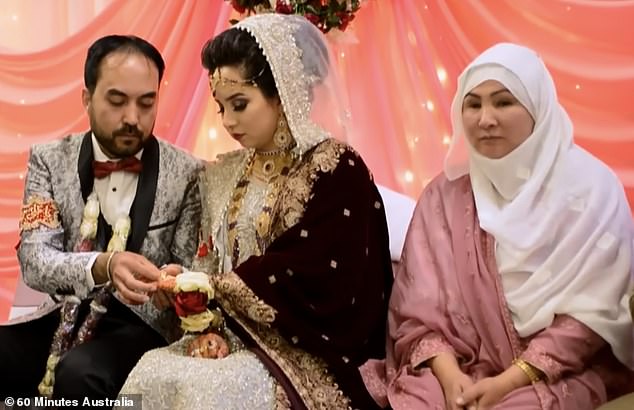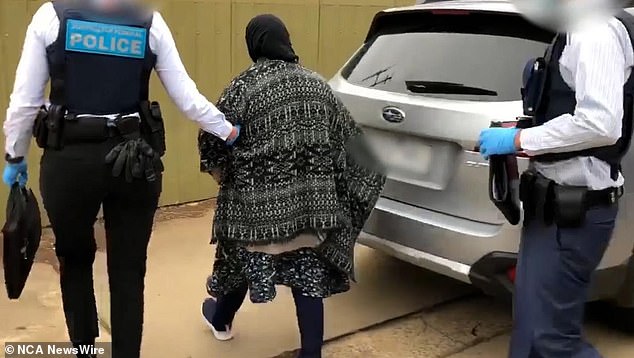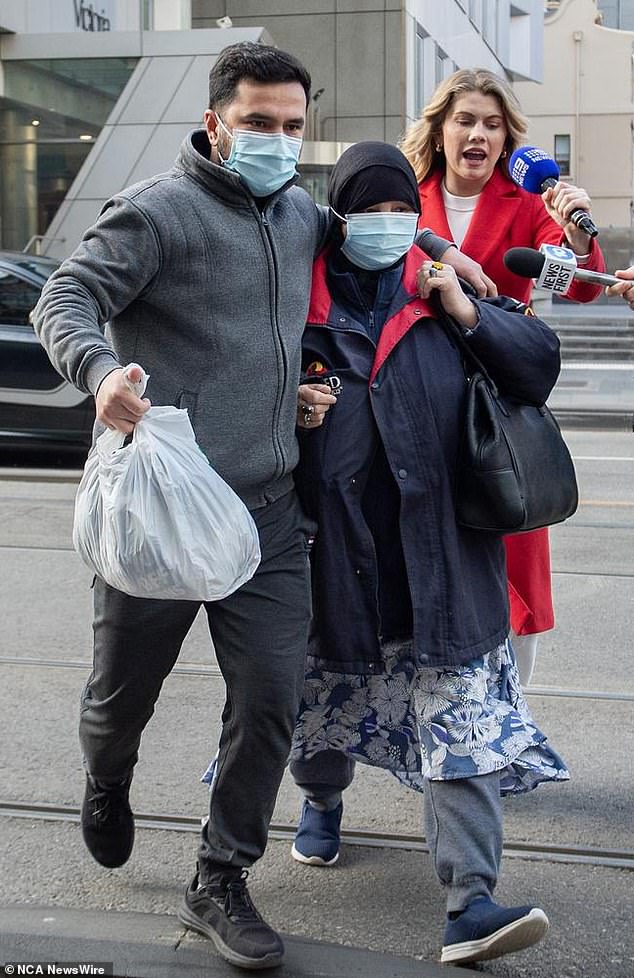A woman who forced her daughter into an arranged marriage that ended with the husband murdering the bride could be jailed for the act, a court has heard.
Sanika Muhammad Jan, 48, from Shepparton in Victoria, appeared in Melbourne County Court on Tuesday.
In May, a jury found Jan guilty of forcing his daughter Ruqia Haidari, 21, to marry Mohammad Ali Halimi, from Perth, in November 2019.
A criminal case of coercion into marriage is unprecedented in Australia because of relatively new federal laws banning the practice and the clandestine nature of such arrangements.
On Tuesday, the court heard that Jan was married by arrangement when she was about 13 in Afghanistan. She had five children and never went to school.
Her husband was killed by the Taliban and the family fled, spending 13 years in a refugee settlement in Pakistan. They settled in Australia in 2013.
Defence lawyer Andrew Buckland said forcing her daughter into marriage was a misguided act by Jan, who thought it was in her daughter’s best interest.
Ms Haidari had already been in one arranged marriage at the age of 15, but that ended and the family was left burdened by a cultural stigma around separation, Buckland said.
Sakina Muhammad Jan, along with a male member of the family, forced her daughter into marriage.

Ruqia (centre) was forced to marry Mohammad Ali Halimi (left), a 25-year-old Afghan refugee and Uber driver, by her mother Sakina Muhammad Khan (right), who paid her a dowry.
“Ms. Jan believed the marriage was the right thing to do because of her reputation and Ms. Haidari’s reputation,” he said.
Ms Haidari was murdered by her new husband in Perth in January 2020, approximately six weeks after their marriage.
The court reported that Jan had not accepted criminal responsibility.
“She has not acknowledged her responsibility but there is one thing that indicates her remorse, something she has expressed to me throughout and again this morning, is that if she had known what Mr Halimi was like, she would not have let her marry him,” Buckland said.
Halimi was sentenced to life in prison with a minimum of 19 years in a Perth court.
Ms Haidari and her murderer husband met a few months before their wedding, a fact that Judge Fran Dalziel said was “mind-boggling”.

Jan spent 13 years in a refugee settlement after fleeing the Taliban. Photo: Victoria Police
“Yes, but it’s a different culture,” Buckland said.
“We find it incredible, but this comes from a culture of arranged marriages.”
Jan does not speak English and had a translator in court.
She had been unable to accept her culpability for the marriage because doing so would mean accepting some responsibility for her daughter’s death, Buckland said.
The family belongs to the Hazara ethnic group, an Afghan ethnic minority that has suffered many victims. A son and a son-in-law of Jan appeared in court on Tuesday.
Prosecutor Darren Renton said Ms Haidari was extremely trusting and financially dependent on her mother.

Jan will know his sentence on Monday
“The day after meeting her husband, Haidari expressed her concerns to people outside the family. She actually said I had no other choice (to get married),” Renton said.
“She had no other choice.”
Forced marriages are difficult to investigate and prosecute, he said.
“The community needs to know that this cannot be done. You cannot operate this way in Australia,” Renton said.
“What happened (the murder) is almost exactly the reason why Parliament says these marriages cannot take place.”
The case could involve the controversial Section 501 of Australia’s Migration Act, which allows a migrant’s visa to be cancelled if they fail a character test.
The court was told that if Jan was sentenced to a prison term, he could be deported to Taliban-controlled Afghanistan.
“Your visa could be cancelled,” Judge Dalziel said.
“But the fact that she is a woman, where she comes from and who is in charge, and the fact that she is Hazara, if I sentence her to 12 months (in prison), it (deportation) is a significant risk for her.”
Judge Dalziel will hand down the sentence in court on Monday, with the prison term being the central question the court will have to answer.
Outside court, television reporters and cameras chased Jan around a busy Melbourne shopping centre intersection, asking her if she was “ashamed” of her actions despite repeatedly hearing that she does not speak English.


